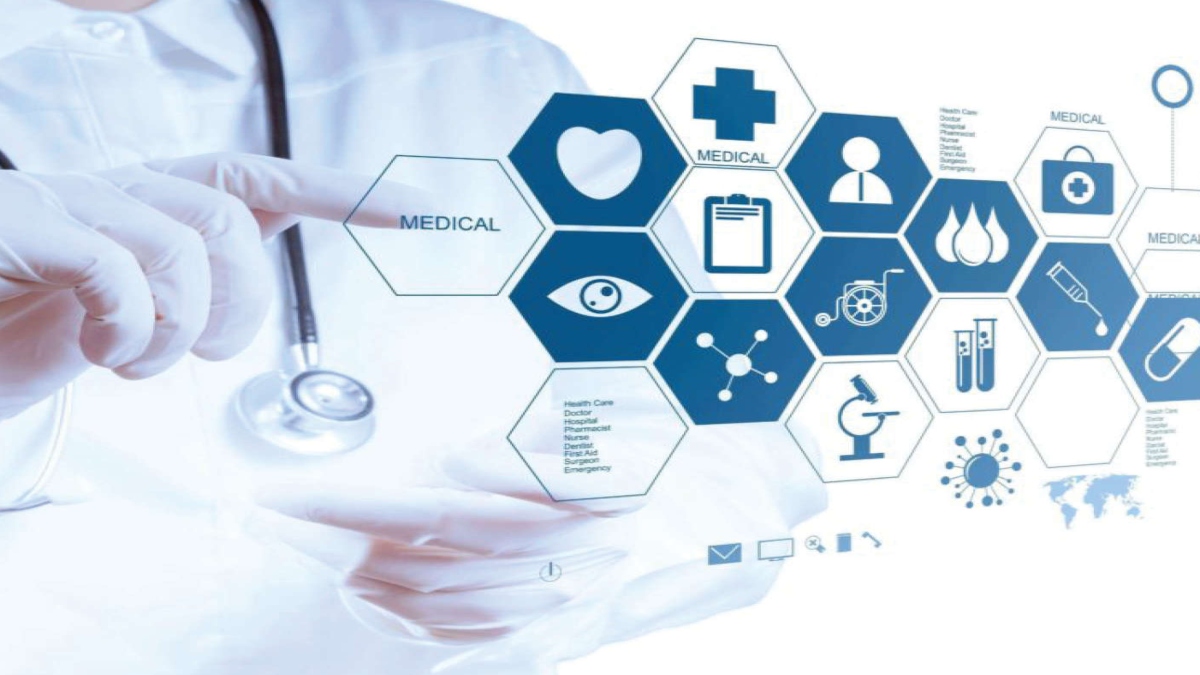
We are presently living in the age of big data. Smart devices connected to digital technologies and the internet, constantly compile and emit data. The flow of information has been unprecedented in history and it will only augment in times to come. The saying, data is the new oil, emphasises its importance in modern times. The power of information can bring a significant competitive edge to any organisation. Data processing enables attaining solutions to problems, identifying trends, delivering personalised services, making informed decisions, finding opportunities for improvements and growth, and so much more. Almost every aspect of modern life has benefited from data collection, processing, and analysis. The healthcare sector is no exception. Big data has helped the healthcare sector deliver cost-effective, advanced, and personalised healthcare services to millions of people.
DATA IN HEALTHCARE
Data has always been vital in healthcare. To deliver healthcare, medical practitioners have collated data such as a patient’s age, height, weight, blood pressure, blood group level, medical history, etc. Such information was limited and used on an individual basis, with little or no aggregation or processing. On the other hand, the advancement of digital technology has radically transformed the scenario.
Currently, data is constantly generated and compiled. Clinical health records are collected and stored electronically. Smartphone apps, patients’ portals, and personal health records are constantly generating data. The data points also have significantly increased and the frequency of monitoring is almost instantaneous. Today, the information is not only collected about the patients’ physical condition but also about the socio-economic and environmental conditions pertaining to the individuals. Increased access to smartphones, digital devices, and the penetration of the internet has supplemented the speed of incoming data. This leads to a tremendous amount of information flow. Handling such volumes of data by traditional means is practically impossible. Primary data is compiled through digital means and processed to draw meaningful inferences.
SIGNIFICANCE OF DATA PROCESSING
Data collection has increased exponentially however raw information is nothingness without processing. Processed data helps derive advantageous inferences which help in making informed decisions. It helps in increasing the accuracy of diagnosis, which further aids in taking preventive measures and providing personalised healthcare. Data analysis also helps in analysing trends and making predictions for the future. Trend analysis also helps in identifying gaps, bottlenecks, and scope for improvement. In other words, data analysis is helping modern healthcare in adapting a personalised and holistic approach. It has helped optimise treatment with increased accuracy, faster, and cost-effectiveness. Preventive measures help reduce hospitalisation and re-admissions, thus reducing the burden on the medical infrastructure.
Artificial intelligence (AI) forms the backbone of modern data processing. AI takes data processing a step ahead of simple computer programs which were designed to sort data and do simpler operations. Besides sorting and segregating data, AI analyses trends and carries out complex tasks in a much smarter way. Clinical data is often complex, unstructured, and collected in different formats. AI has removed the limitations of format and structure from data processing. AI has already proved its utility and superiority in predicting several types of diseases.
Machine learning uses the data processed by AI in creating algorithms to teach machines to make data enriched predictive decisions. This to some extent is curtailing human involvement in some aspects of healthcare, which means fewer human-induced errors. Machine learning finds its utility in clinical decision support systems, medical imaging analysis, smart record-keeping, personalised medicine, robotic surgery, drug discovery, research, predictive and preventive care, and various other areas. ML has greatly increased diagnostic accuracy.
Data is playing a crucial role in every aspect of modern life. It has been the driving force behind the growth of many sectors and has empowered professionals with unparalleled knowledge. The healthcare sector has also reaped the benefits of data collection and processing. AI and ML have enhanced the data processing ability and expanded the horizon of its usage in ways unimaginable a few decades ago. With these technologies in place, machines are assisting humans not only physically but also mentally. Thanks to these technologies today healthcare is better-planned, more accurate, cost-effective, faster, smarter, and easily accessible than ever before.
The writer is CEO, vHealth by Aetna (India).
Big data has helped the healthcare sector deliver cost-effective, advanced, and personalised healthcare services to millions of people.